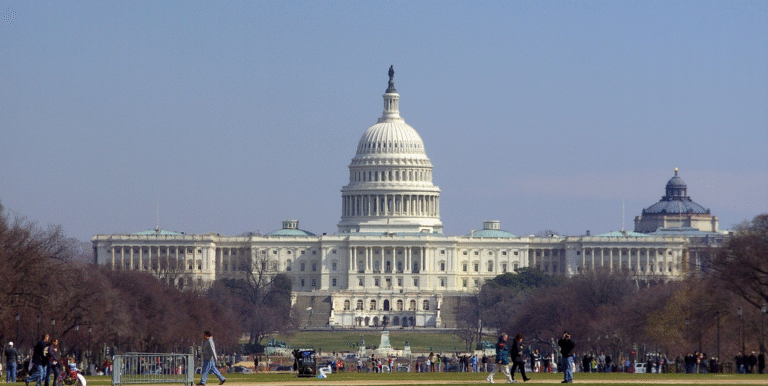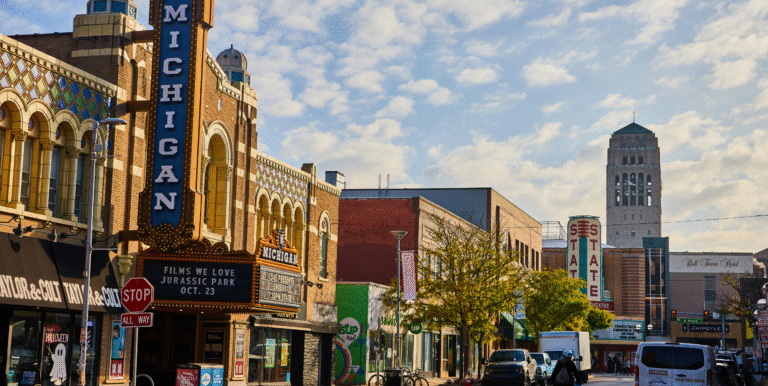Cannabis in Indiana: Illegal, Limited CBD Laws

It feels like the rules for marijuana are changing all the time, right? One state says it’s okay, but the next one doesn’t. You might look at neighbors like Michigan and Illinois, where cannabis is legal, and wonder what the deal is in the Hoosier State.
So, let’s get straight to the point: Is cannabis legal in Indiana? The short and simple answer is no. Both recreational and medical marijuana are currently illegal. Navigating the complex world of cannabis in Indiana requires clear, accurate information, and this guide will break down everything you need to know about the state’s laws, the limited CBD exceptions, and the potential for future changes.
The Uncompromising Legal Status of Marijuana in Indiana
Indiana has some of the strictest cannabis laws in the country. Unlike many other states, it has not moved to legalize or even decriminalize marijuana. This means getting caught with it can lead to serious trouble.
Recreational Marijuana
Let’s make this super clear: using marijuana for fun is completely illegal in Indiana. The state has not decriminalized it, which means even having a tiny amount is a crime, not just a small ticket like in some other places.
You cannot legally buy, sell, grow, or possess recreational marijuana. Indiana law enforcement takes these rules very seriously, so it’s important to understand there is zero legal wiggle room here.
No State-Approved Program
What if you need marijuana for a medical reason? Unfortunately, the answer is still no. Indiana does not have a medical marijuana program. This means there are no state-licensed dispensaries to buy from and no way to get a medical marijuana card.
This can be really tough for patients with health conditions who could benefit from cannabis. For those unfamiliar with how these programs operate in other states, understanding the process for obtaining a medical card involves physician consultations and state registration, a system Indiana has not yet adopted. Without a program, patients in Indiana have no legal protection.
A Note on Medical Access in Other States: In states with legal medical programs, getting help quickly is key. At HealifyNowMMJCards, you can get approved for your medical card online in minutes. They offer a hassle-free experience to help you access the care you need. You can begin your application and get approved quickly!
Penalties for Possession and Distribution
Because cannabis is illegal, the penalties can be harsh. It’s smart to know what you could be up against. The consequences get worse if you have prior offenses or are caught with larger amounts.
Here is a simple breakdown of the potential penalties:
- Possession: Being caught with any amount of marijuana is a Class B misdemeanor. This can mean up to 180 days in jail and a fine of up to $1,000. If you have a prior drug offense, it becomes a Class A misdemeanor, with up to a year in jail and a $5,000 fine.
- Selling or Growing: Dealing or cultivating cannabis is a much more serious crime. Depending on the amount, it can range from a misdemeanor to a Level 5 felony, which carries a sentence of one to six years in prison and a fine of up to $10,000.
- Paraphernalia: Even just owning a pipe, bong, or rolling papers is a Class C misdemeanor. This could land you in jail for up to 60 days with a $500 fine.
Indiana’s Low-THC CBD Law
Okay, so there is one small area where a cannabis product is legal in Indiana, and it often causes confusion. This one exception is for certain types of CBD products.
What Qualifies as Legal CBD in Indiana?
Back in 2018, Indiana passed a law that made some CBD products legal to buy and sell. However, there are very strict rules. For a CBD product to be legal, it must be made from industrial hemp and contain no more than 0.3% Delta-9 THC.
THC is the part of the cannabis plant that makes you feel “high.” The 0.3% limit is extremely low, so these products won’t have an intoxicating effect. This distinction is the most critical aspect of understanding legal cannabis in Indiana. Anything with more than 0.3% THC is considered illegal marijuana.
Sourcing and Safety: What to Look For
Since CBD is legal, you can find it in many stores across the state. But how do you know if a product is safe and actually legal? The best way is to look for products that have been tested by a third-party lab.
These lab reports, often called a Certificate of Analysis (COA), show exactly what’s in the product. They prove that the THC level is at or below the legal 0.3% limit. Consumers interested in the wellness potential of cannabinoids benefit from learning about different cannabis compounds and their effects to make informed choices.
Is Legalization on the Horizon?
So, will things ever change in Indiana? It’s possible. There is a growing conversation about legalization, even if the laws haven’t caught up yet.
Recent Legislative Efforts and Shifting Public Opinion
In recent years, some Indiana lawmakers have tried to pass bills to decriminalize or even legalize medical marijuana. So far, none of these bills have passed into law. However, they show that the conversation is happening at the state level.
At the same time, most people in Indiana seem to want change. Polls consistently show that a large majority of Hoosiers support legalizing marijuana for medical use, and many also support legalizing it for recreational use.
The Economic Influence of Neighboring States
A big reason for this push is what’s happening right next door. States like Illinois and Michigan have fully legal cannabis markets, and they are making hundreds of millions of dollars in tax revenue.
Many Indiana residents simply drive across the border to buy cannabis legally, which means all that potential tax money is leaving the state. The economic success in neighboring states is a powerful argument in the ongoing debate over the future of cannabis in Indiana. Lawmakers are starting to notice the lost opportunity.
Navigating the Law and Staying Prepared
While the future is uncertain, it is very important to follow the law as it exists right now. Getting into legal trouble can have a lasting impact on your life, so being cautious is the smartest approach.
To stay up-to-date, keep an eye on reliable news sources and advocacy groups in Indiana. As the conversation continues, you will want to have the latest information.
Being prepared is always a good idea. In states where medical cannabis is legal, patients find it essential to keep their approvals and physician recommendations organized. Many use a secure patient portal to manage their status and access their information easily, a model of efficiency that could one day be useful in Indiana.
Conclusion
So, here’s the bottom line. For now, cannabis remains illegal in Indiana for both recreational and medical use. The only legal option is low-THC CBD oil that meets the state’s strict 0.3% THC limit. Breaking these laws can lead to very serious penalties.However, things might not stay this way forever. With growing public support and the economic success of legal states nearby, the pressure for change is building. While the future of cannabis in Indiana is uncertain, understanding the current, strict legal framework is the most crucial step for any resident. Staying educated and aware is the best way to navigate today’s laws and prepare for whatever changes tomorrow may bring.
📚 Table of Contents
- The Uncompromising Legal Status of Marijuana in Indiana
- Recreational Marijuana
- No State-Approved Program
- Penalties for Possession and Distribution
- Indiana's Low-THC CBD Law
- What Qualifies as Legal CBD in Indiana?
- Sourcing and Safety: What to Look For
- Is Legalization on the Horizon?
- Recent Legislative Efforts and Shifting Public Opinion
- The Economic Influence of Neighboring States
- Navigating the Law and Staying Prepared
- Conclusion







